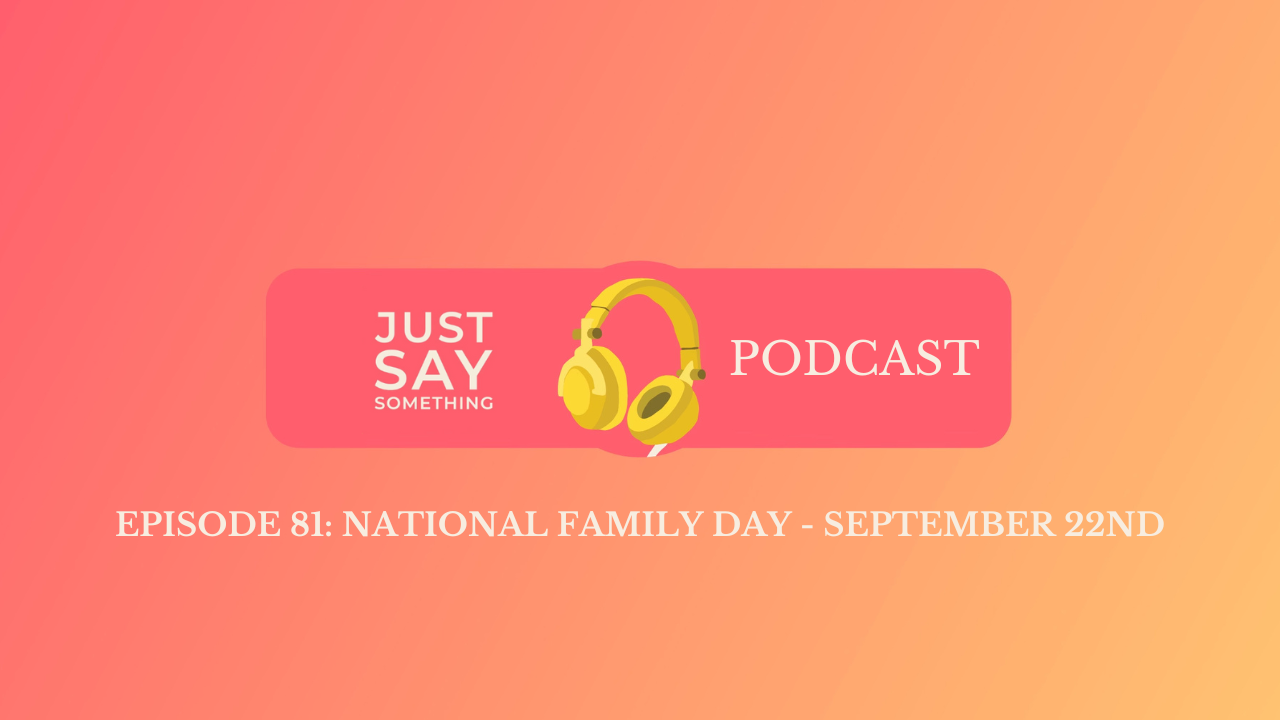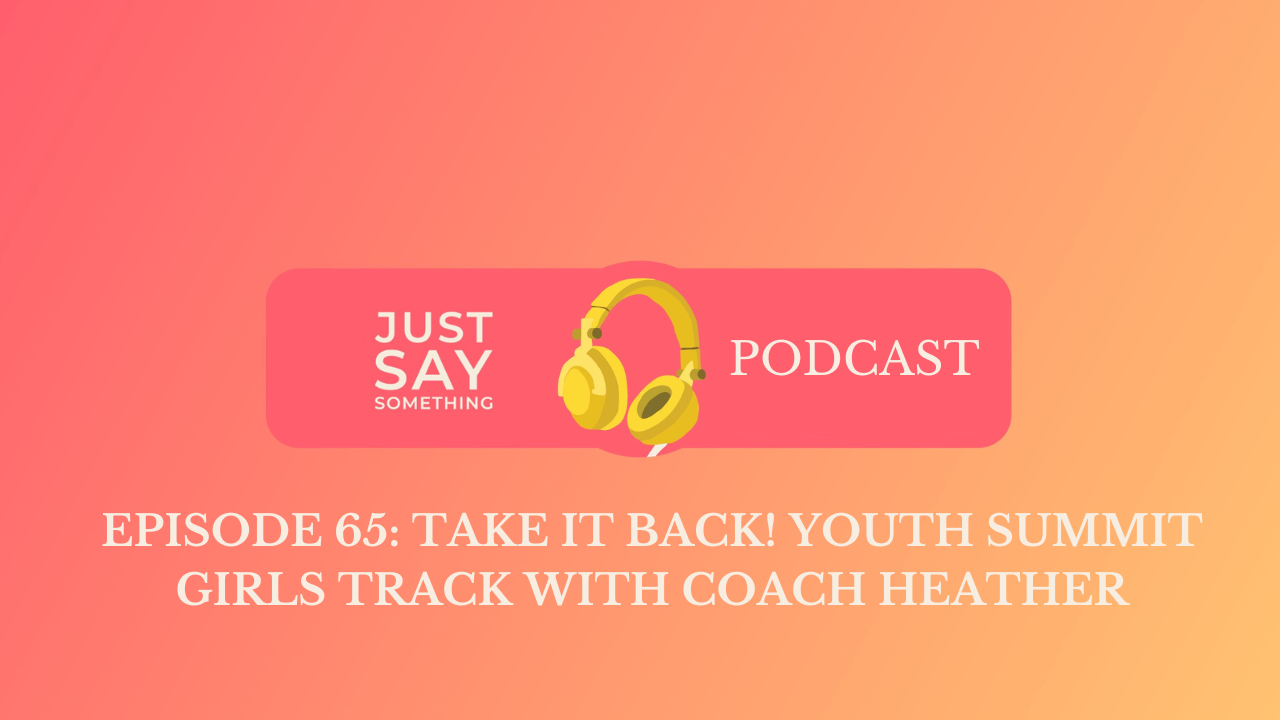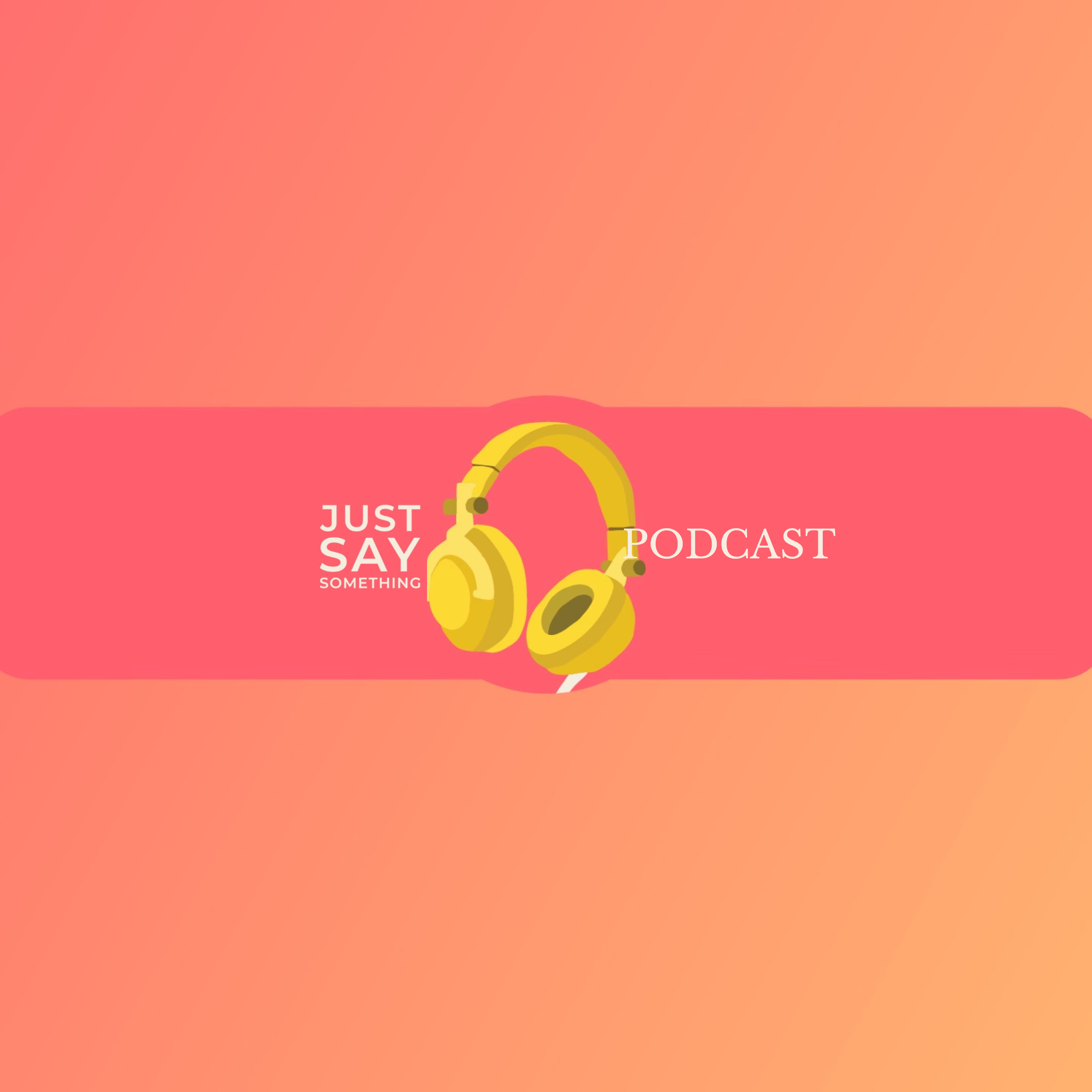Episode Transcript
[00:00:07] Speaker A: Well, good afternoon. Welcome back to just say something's weekly podcast. My name is Phil CLark, and I am the director here at just say something.
Today we have a guest with us that plays a very, very important role in our community. I'd be willing to bet most of you have no idea who she is or where she works, but by the end of this conversation, you will know all about mental health America, Greenville county and 988. And so Jennifer Piver, the director at Mental Health America, Greenville county. Welcome.
[00:00:47] Speaker B: Well, it's good to be here. Thank you.
[00:00:49] Speaker A: So tell us a little bit about mental health of America, Greenville county, and then a little bit about 988.
[00:00:58] Speaker B: Wonderful. We've been here since the 1950s in Greenville county and started as a small grassroots nonprofit focusing on mental health awareness and advocacy back then. And the program has grown to where we provide housing, support for individuals with a chronic mental health condition. We provide representative payee services, education, and then the 988 hotline, which we've been providing hotline services since 1990.
[00:01:30] Speaker A: Okay. All right, so through 988.
So that's gone through some changes recently. Can you tell us a little bit about that?
[00:01:42] Speaker B: So 988, that three digit phone number, rolled out to the nation in 2020, but really, it's a service that has been there since 2005, and we've participated in the lifeline network since 2007. What they realized on a national level is when you're in crisis, looking up a ten digit phone number isn't always easy or something you think of to do. And we wanted to normalize mental health, substance crises and let people know that there's a place they can call. Hence the easy to remember three digit 988.
[00:02:22] Speaker A: Yeah. Goes along the line of 911 and for the police and fire and ambulance. And then 988. If we feel like we're in some type of a crisis and we need to talk to someone, exactly what type of resources or what kind. So someone calls 988.
Walk us through that. What should they expect?
[00:02:45] Speaker B: Okay. The very first thing they're going to hear is a welcome. And one of the things that 988 is working really hard nationally is to reach out to communities or individuals who are at higher risk for suicide. And it's important to know that you don't have to be suicidal to call. We hope that by talking life stresses through, we can prevent that crisis. But when you first call, you'll hear the option that if you're a veteran, you can press one. If you speak Spanish, you can press two. If you identify LGBTQI, you can press three, or you can just wait. So that gets you to just some specialized centers, and then your call is routed to the area code of your phone. So in the upstate or in South Carolina, there's mental health America, and now there's a second center in Charleston through DMH. But they'll come to us, and our number one tool is to listen. I always say we have enough people in our life telling us what we should do, how we should do it, when we should do it, but not really hearing what people are going through. So we're there to listen without judgment and screen for suicidal thoughts, and then provide community resources, connect you to the services you need so that you have them outside of that intense and emotional moment.
[00:04:15] Speaker A: Sure. Sure. So let's talk a little bit about the people who answer the phone.
[00:04:21] Speaker B: Okay.
[00:04:23] Speaker A: Tell us, are they volunteers? What kind of training do they have to attend? Because, I mean, you can't just, hey, I want to volunteer to answer the phone, can you?
[00:04:32] Speaker B: You cannot.
We have a lot of folks who really do want to help, but we have the bulk of our folks, our staff, who are paid to provide that support. It's 24 7365. And we do have some volunteer options, but the folks go through really nearly about 100 hours of training on how to communicate, the how to screen, or how to assess for different risk factors and navigate their resources. So they do role plays, and there's technical things they need to learn. But again, the number one piece is actively listening.
[00:05:13] Speaker A: Okay. And I think all of us could do a little bit better.
[00:05:16] Speaker B: Absolutely.
[00:05:17] Speaker A: Can't we?
So you alluded to this a little bit. So suicide is one of the top reasons. What are some of the other reasons that our listeners may be out there thinking? Well, I don't know that I would call the crisis line for this. So what are some of the other topics that you all cover?
[00:05:42] Speaker B: Absolutely. Suicide is one of the reasons people call, but it's really not the number one reason.
We have folks who are worried about a loved one. So it's important to know that you yourself don't have to be in crisis. If you're worried about a loved one who's having thoughts of suicide or needs resources, please call. But we all have stress, whether it's relationships, bullying at school, abuse, work, unemployment, those are all things that we can talk through before a crisis happens. And we're all about suicide prevention. And the earlier we can do it, that's what we're there for.
[00:06:27] Speaker A: Prevention is so much more cost effective, and there's an awesome return on investment.
[00:06:33] Speaker B: Absolutely.
[00:06:34] Speaker A: As opposed to treatment in the follow up.
So 988 is part of a national system here in South Carolina based on area code, the calls will either come to Greenville county or to Charleston county.
What if those lines are busy?
[00:06:54] Speaker B: Well, first we send them to each other so we're each others backup.
[00:06:59] Speaker A: Okay.
[00:06:59] Speaker B: But then if we're tied up, then it'll go to a national partner, which is the beauty of having such a coordinated system is that even if you have to wait just a little bit, please stay on the phone because someone, literally thousands of people are waiting to answer your call. And you can text too.
[00:07:19] Speaker A: Oh, so do you text 988?
[00:07:22] Speaker B: Yep.
[00:07:23] Speaker A: And so someone will respond.
[00:07:24] Speaker B: Yep.
[00:07:25] Speaker A: That's awesome.
[00:07:26] Speaker B: Yeah. And you can, they've started. Well, there's the chat you can get to at nine eight eight sc.org. And most recently they have ASL now with video relay with a crisis counselor. So it's not just interpretation services. And they can get that by going to nine eight eight sc.org as well.
[00:07:45] Speaker A: Oh, wow, that's great.
[00:07:47] Speaker B: Yeah.
[00:07:48] Speaker A: So that leads me to the next question. How do you promote this?
You know, it's, our organizations have worked together for a long time and our issues within the community are greater than any one entity. And so I'm all about cross pollinating, if you will say, promoting. But how as far as 988 or mental health of America, how do you get the word out about this wonderful free service?
[00:08:22] Speaker B: Well, I mean, like you said, collaboration is everything, and collaborations with partnerships with you and the power collective and wellbeing partnership are instrumental because you all see more of the folks than we have the resources for currently. We're also really excited that the legislature has passed so that it's on all the student id bills, 7th grade and up. They're looking to expand that age group this year. So that's another way we work with the state Department of Mental Health to do more broad scope radio and hopefully tv will be coming out soon, but word of mouth and anywhere we can and podcasts.
[00:09:07] Speaker A: So what you just said made me think, so how young can someone, because if you're promoting this in middle schools, our schools have really changed over the years.
[00:09:24] Speaker B: Absolutely.
[00:09:25] Speaker A: That's got to be so hard for those kids.
And so part of your training for your staff is based on the age of the person on the other end.
[00:09:36] Speaker B: Absolutely. And we've talked to youth as young as seven and that's it. It's heartbreaking, but we're so grateful they know who to contact.
So absolutely, we teach our workers how to talk age appropriately and being able to brainstorm for different age levels. You know, do you have a trusted coach or a parent or Girl Scout leader, you know, whomever, to really try to have them find accessible resources and ways to problem solve for themselves.
[00:10:08] Speaker A: Okay, so where do you see 988 in, say, five years?
[00:10:15] Speaker B: Oh, I see it hopefully in every corporate employee assistance program. And really with all the schools that's so important, on magnets, on refrigerators, and most importantly, 100% answered in state, on calls, chats, texts, everything.
It's so important for them to be answered in state because we know the community resources. I can call you and say, hey, we've got this individual who needs help or let them know about DMH's mobile crisis unit. Another state won't know that. And one important thing to note is that 988, the spirit of it, is always about the least invasive intervention, and the least invasive intervention is us just being together and talking and listening. Exactly. So people fear that we're going to call 911. That is not what we're about. That's the. The last thing that we consider ever.
[00:11:18] Speaker A: Okay. All right. Wow, that was a lot of information.
[00:11:21] Speaker B: It is.
[00:11:23] Speaker A: You know, is there a website people can go to?
[00:11:27] Speaker B: 988 sc.org dot.
[00:11:29] Speaker A: Okay. Nine eight eight sc.org dot. That's pretty short and to the point.
Any last words or last thoughts you would like to share with our listeners?
[00:11:42] Speaker B: I would like to say that 988 really is a new number for hope, so that you can have time to think through what's going on, find other different resources. Because sometimes when you're so distressed, you get that tunnel vision and just can't think outside or wider. And that if you're concerned about someone, we're here for you, too.
[00:12:06] Speaker A: That's great to know hope. So many of our families and so many of our kids don't know what hope is.
[00:12:13] Speaker B: Absolutely.
[00:12:14] Speaker A: And a lot of us are blessed, but in our community, there's another part of our community that's not as blessed as some of us are, and they need help. And so if so, I was going to end, but I'm going to come up this last question. Are you able to go to churches or community centers to speak, to talk about 988 and the programs and resources that you have available?
[00:12:49] Speaker B: Absolutely. We will talk wherever we can. And I think it's so important because this increases accessibility to care. We're confidential, we're free, and we can connect you. We're here 24/7 so we want to get that word out as much as we can.
[00:13:05] Speaker A: And how do they connect with you to do that, to do that. Nine eight eight sc.org dot there's a.
[00:13:11] Speaker B: Link to get to us there to contact us to come on out.
[00:13:14] Speaker A: Okay. All right. Well, there you have it, folks. 988 it's so important for those in our community, Jennifer and our other providers that we work with see it day in and day out.
And I like the hope piece because we use the word hope a lot. And so, Jennifer, I want to thank you for being here with us today. And I look forward to next time and look forward to growing the relationship between mental health America, Greenville County. 988 and just say something.
[00:13:50] Speaker B: Absolutely. Thank you so much for having me.
[00:13:52] Speaker A: Thank you.
[00:13:53] Speaker B: Have a good day.
[00:13:54] Speaker A: All right, folks, that'll do it for this week. Stay tuned and we'll be back next week with another other topic. Until then, have a great day.


